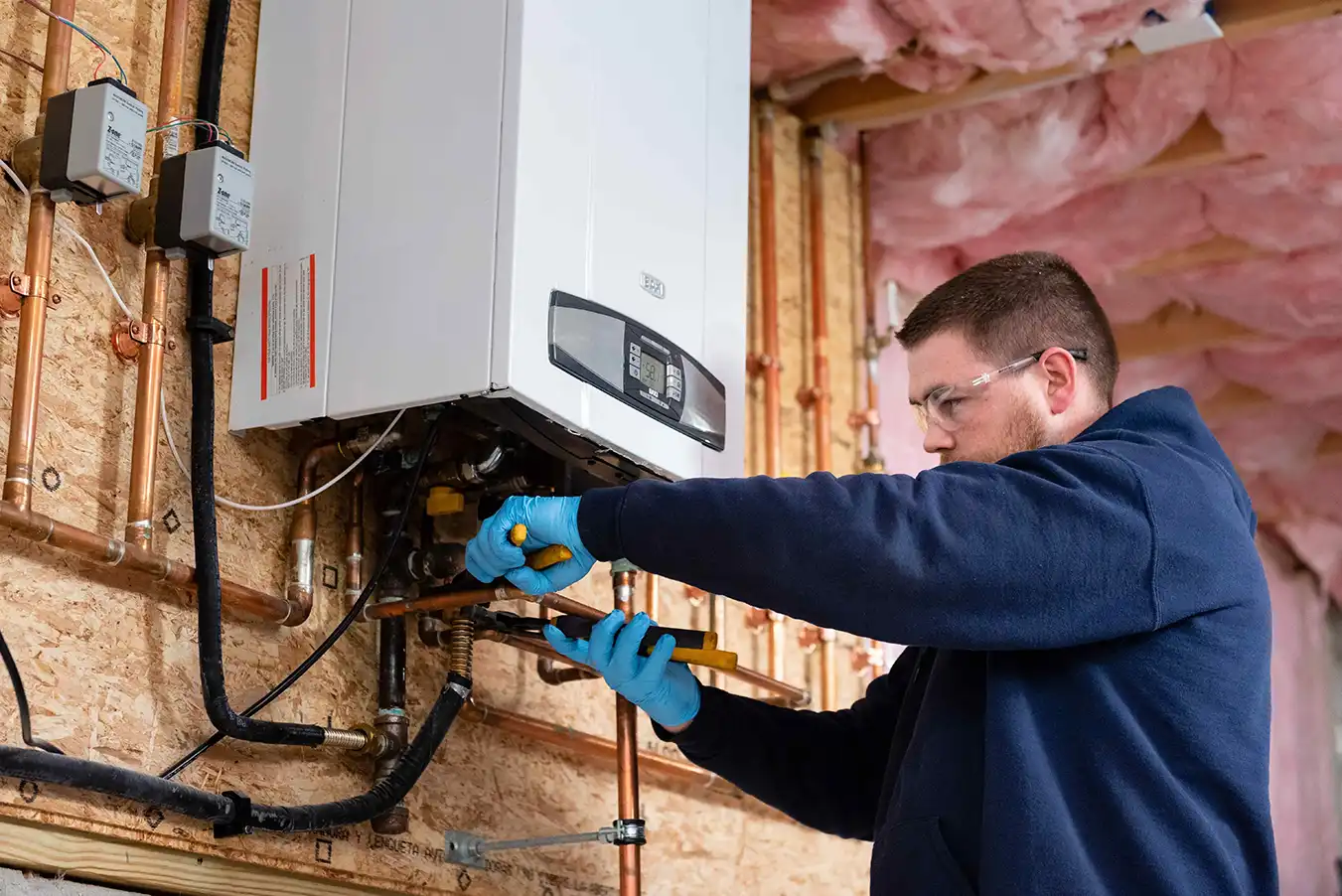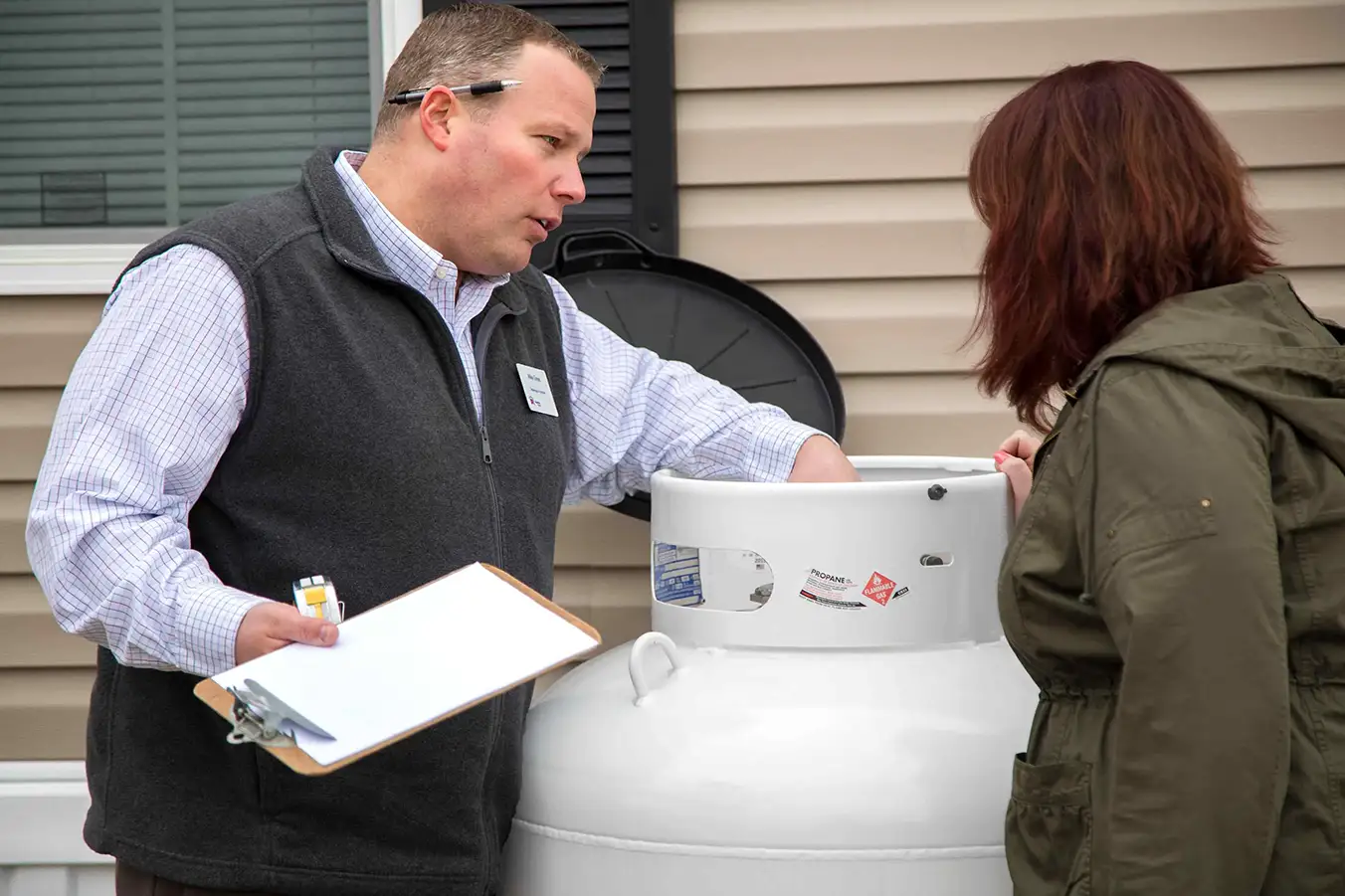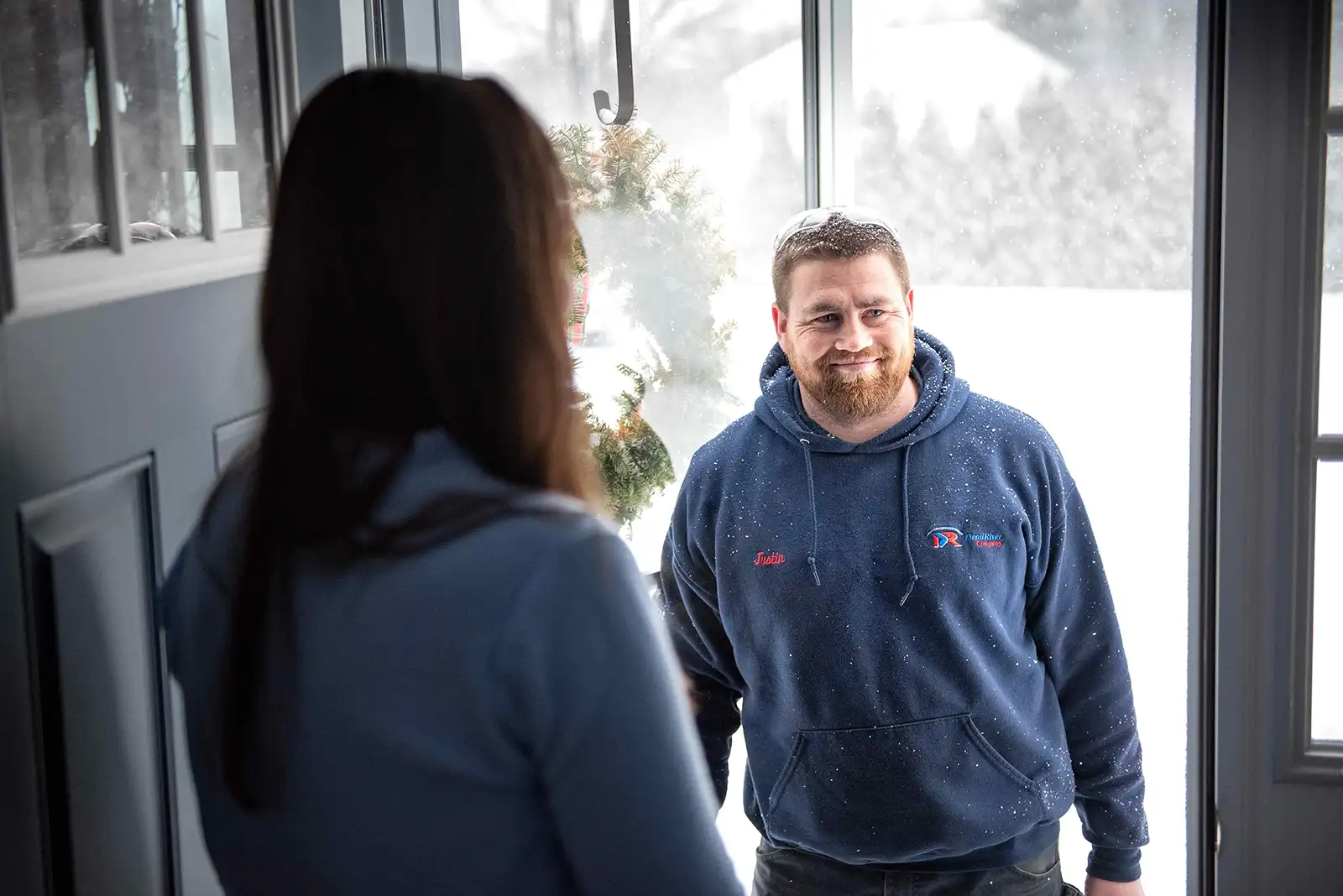Equipment Installation

Installation Options
Whether you’re getting a new system or updating an existing one, we’re here to simplify the process—from helping you choose the best heating option to making installation day easy—from start to finish.
Propane Equipment Installation
Converting to propane offers many advantages for your home, energy budget and the environment. We install propane central heating systems with an AFUE (Annual Fuel Utilization Efficiency) of up to 95%. Each installation includes one year of our SharePlus Service Plan at no cost to you.
Heating Oil Equipment Installation
We'll get your heating oil system installed and running in not time. With today's modern technology, high efficiency heating oil systems have an AFUE (Annual Fuel Utilization Efficiency) of up to 90%. Each installation includes one year of our SharePlus Service Plan at no cost to you.

Expert Advice
When you request a free estimate, our Residential Energy Advisor will guide you through every step of the process: from deciding whether propane or heating oil is the right choice, to discussing which brand and model system to install—and even helping identify the most current tax credits and manufacturer rebates.
Home heating tax credits & rebates
When you install ultra-efficient home heating equipment, there are often tax credits or manufacturer rebates that cover a portion of the equipment costs. Simply put, you get credit for choosing a more efficient, greener heating option.


Decide now, pay later
The winter chill waits for no one. That’s why we offer convenient financing options through our partner GreenSky, LLC®. Get affordable financing today with a simple application process and no penalty for repaying early.
Request a free estimate
Ready to take the next step? From choosing heating equipment to finding tax credits and rebates, we’re ready when you are.

